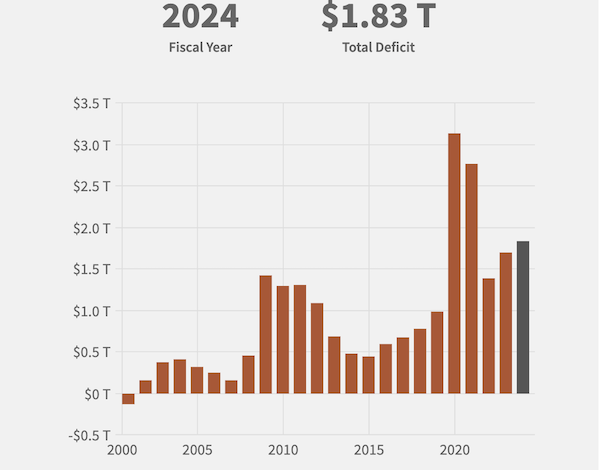Market scorecard
US markets had a horrible end to the week on Friday, with the S&P 500 down 2%. The usual concerns about mad tariffs, a slowing US economy, and the risk of inflation spooked investors. Today will mark the end of the quarter and the main index is down 5.1% year to date. The tech-heavy Nasdaq is down 10.3% which is obviously much worse.
In company news, CoreWeave's shares had a rocky debut, closing at $40 - right at its IPO price but well below the initial target range of $47 to $55. That's not a hairpiece reseller, it's an AI startup that rents out access to Nvidia chips. Elsewhere, French video game publisher Ubisoft rose 11.4% after announcing it would create a new subsidiary with iconic games such as Assassin's Creed and Far Cry. That offshoot will receive a $1.25 billion investment from China's Tencent.
On Friday, the JSE All-share was down 0.36%, the S&P 500 fell 1.97%, and the Nasdaq was 2.70% lower. Foof!
Our 10c worth
One thing, from Paul

Mondays are for comments about Vestact's asset management business. We have a policy of avoiding companies with a market capitalisation of below $100 billion. Why is that?
We focus on large-cap, New York-listed multinationals because they have dominant market positions, as well as the widest margins, best employees and lowest cost of capital.
But there's an additional reason for avoiding smaller companies - the big caps are more liquid. Liquidity is defined as the ease of buying or selling an asset without affecting its price. In other words, no single seller has sufficient volume to cause meaningful price changes.
Stocks like these can be turned into cash without breaking a sweat, even when the overall market is not doing well. That's very important, because nothing upsets investors more than being told that they can't get their money back fast, if they need it.
Byron's beats

According to Howard Lutnick, the US Secretary of Commerce, the estimated value of assets owned by the US government is somewhere between $500 trillion and a quadrillion ($1 000 trillion). That's a lot of money.
When you look at US government debt, which sits at $37 trillion, it does seem a lot more manageable next to a balance sheet of that size. If you take the lowball estimate of $500 trillion, the debt level is only 7.4% of assets. Tell that to any accountant and they will not be concerned about too much leverage.
There is still a large budget deficit and that needs to be fixed, but the US is far from being bankrupt. That explains why they can still borrow money at very low rates.
Michael's musings

DOGE and Elon Musk have the goal of reducing US Government spending by $1 trillion, roughly 15% of the budget. To put things into perspective, in 2024 the US collected $4.9 trillion in taxes but spent $6.7 trillion, meaning they had to borrow $1.8 trillion to balance the books. As Byron points out above, the debt itself isn't the issue, it is the spending.
A cut of $1 trillion is roughly 3% of the US economy, and terminating that spending would be a shock. It would also result in significant job losses, and a further reduction in secondary, private sector spending.
It's one thing to slash the workforce at a private company like Twitter, where a few thousand people retrenched is a rounding error in the overall US job market. It's completely different when the government is trying to apply the same tactics. In most cases, an economy responds better to slow change. When things change too quickly, investor and consumer confidence drops, which results in less spending and investment.
Bright's banter

I listened to a great podcast by Eugene Wei, who's known for his sharp takes on tech, media, and social networks. He explored how today's algorithm-driven social media platforms are shaping culture, comparing them to the television era that Neil Postman critiqued in Amusing Ourselves to Death - except now, we might be "Amusing Each Other to Death."
Wei unpacked TikTok's influence on our "digital nervous system" and made an interesting distinction between social networks (built for connection) and social media (optimised for engagement and frictionless consumption). He also touched on how rising nihilism among young people ties back to economic and cultural shifts, with social media amplifying these trends.
A big takeaway was how power laws dominate tech, media, and finance, leading to increasing speculation across cultures. He used American television as a lens to track society's shifts, from Friends to Succession, showing how narratives have evolved alongside economic realities.
He wraps up with thoughts on AI's role in creativity and what elements of humanity might hold value in the future. It is a solid listen and definitely worth checking out. Amusing each other to death.
Linkfest, lap it up
This guy wants Boeing to be held accountable. From fatal crashes, door blowouts, and grounded planes - The worst 7 years in Boeing's history.
AI can't just be 'clever' it has to be useful too. Companies are pushing to introduce new functionality - Microsoft adds 'deep reasoning' Copilot AI for research and data analysis.
Signing off
Asian markets extended their losing streak for a fourth day as investors braced for another round of tariffs from President Trump's "Liberation Day" on Wednesday. Benchmarks tumbled from Sydney to Hong Kong, with Japan's Nikkei-225 hitting a six-month low and Taiwan's market nearing correction territory after sliding 10% from its peak.
In local company news, Discovery Bank launched an AI platform that helps its customers with financial advice specific to their own situation. Elsewhere, Novus is contesting the Takeover Regulation Panel's about turn on its mandatory buyout of Mustek. The authorities say the DK Trust (one of Mustek's main shareholders) is acting in concert with Novus.
US equity futures are lower in pre-market trade. The Rand has finally weakened a little, to above R18.40 to the US Dollar.
Did you have a good March? If not, April is another chance. Don't get caught out by April Fool's Day tricks tomorrow.